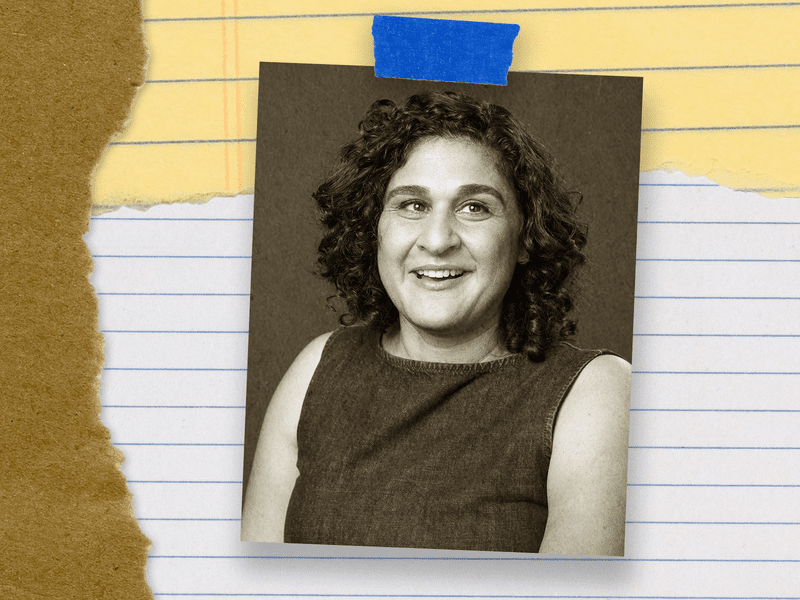SAMIN NOSRAT:
I feel like everyone's going to know so much about me now. Yeah so, in a lot of ways like me talking to you right now is my mom's worst nightmare. OK.
Number one. Hurting others.
Number two. Those I love will decide I'm not worth their love.
Number three. That I will get cancer. I had a sister born with a kind of a brain tumor that children can't survive past the age of five. So she passed away when she was three, and I was a baby, and in a lot of ways that loss has affected my family life. And I think my mom always was guided by things that she heard or thought could cause cancer and kept those things away from us. Like we never got a microwave. So I think that's always been a little bit there in the back of my mind.
Number four. That the color of my skin will bring harm upon me. Well, I've always been aware of being different, but I wasn't really aware of any sort of threat to my physical person because of the way I look or because of my name, until September 2001. At that time I used to wear this agate necklace that was my sister's and it had the Arabic names of the five main prophets of Islam on there. And so I remember I got a flat tire a few days later and the guy who was changing my tire was black, and he was like, “Oh what's on your necklace?” And I told him and he is like, “You gotta put that away. You got to be careful. It's not safe to look like you look anymore”.
Number five. Causing irreparable damage to my body.
Oh this is so funny. Number six, that I will cause others' pain, which is the same as number one, which is hurting others.
Number seven. That no one will ever love me just as I am. There are a lot of etiquettes built into the way that Iranians relate to other people, and other Iranians, that are really complicated. And one of them is called taarof. It actually is a name. There's not really a translation for the word taarof. So “to taarof” can mean something as simple as, if somebody offers you a cup of tea and you want it, you must first say no, you must first say, “Oh no I couldn't possibly”. And you might actually want the tea, but you just have to appear to not want the tea.
Like, I had to actually have my therapist go watch videos of it so he could understand me and my culture. But like there's videos on YouTube of Iranian parents training their kids like, “Here's a cookie, do you want it?” and then kid will be like, "Yes." And the parents are like, “No! No! You have to say no." So to me, as I was sort of implanted with those beliefs, and I was like, "Oh well I'm going to say no when I mean yes and yes when I mean no."
But then I'm if I'm operating in a Western world where people just say yes when they mean yes, and no when they mean no, and someone tells me that they love me or that they like me or that I'm valuable, in my head I'm like, "Well, they're just saying that because they have to. But actually they're saying yes when they mean no." You know? And so it's this really complicated like brainwashing that I'm trying to unravel, but it is still something that controls me and probably will control me, you know until I die.
Number eight. Hurting my knee. My poor left knee has suffered two tears in the meniscus in the last several years.
Number nine. That I'll unwittingly violate some journalistic ethic and bring eternal shame upon myself or the New York Times. Food media in general is a deeply corrupt part of the media where there's so much, sort of like, tit for tat and people getting free meals in exchange for writing for things. But I have had an almost 20-year-long career in the food industry, and because of that, I know a lot of people. And so there's just a constant sort of like, if I write about this, is it coming from a true sincere care for something, or is it because of some other ulterior motive?
And so even though like I would say the dinky food column that I write in the New York Times Magazine is not the thing that's under major scrutiny by those who are constantly yelling out, “fake news, fake news,” I don't want to be the reason that anybody, you know, discredits anything that anyone else writes or says.
Number ten. I'll never find love. Let's put it this way. My professional resumé is much longer and more filled out than my personal one.
My name is Samin Nosrat and these are 10 things that scare me.
